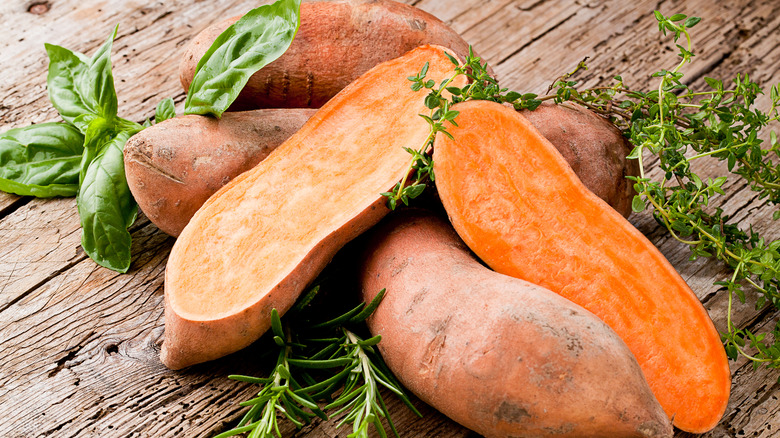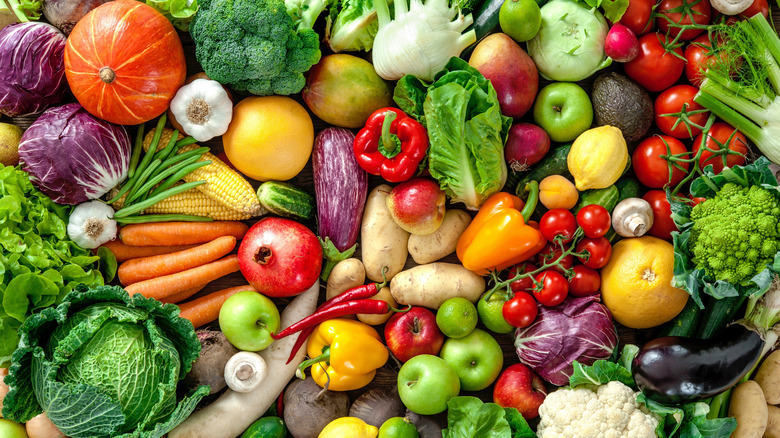Can You Get Enough Vitamin A From Eating Sweet Potatoes?
Sweet potatoes are just regular potatoes with a pop of color and a touch of pizazz, right? Well, no. While they are both impressively versatile root vegetables and grade-A comfort foods, these two peas in a pod aren't actually as close as you might think. Potatoes and sweet potatoes bring very different things to the table when it comes to nutrition and taste (per Healthline).
Nutritionally, potatoes and sweet potatoes are comparable in many ways. But when it comes to the amount of vitamin A these two vegetables are packing, sweet potatoes take the cake (or should we say pie?). Our bodies can't whip up vitamin A from scratch, so we must get it from the foods we eat instead (per Cleveland Clinic). While there are many delicious ways to consume vitamin A, is it possible to get the daily recommended amount from sweet potatoes alone? Let's take a closer look.
How much vitamin A do we need?
Have you ever heard the old wives' tale that carrots can help you see in the dark? While they do not, in fact, give you night vision, carrots (like sweet potatoes) are high in beta-carotene (per Harvard Health Publishing). Like Rumpelstiltskin spinning straw into gold, Mayo Clinic explains that our bodies take beta-carotene and turn it into vitamin A — a nutrient that plays a key role in eye health.
Our eyes aren't the only ones benefiting from a healthy dose of vitamin A. Harvard Health Publishing notes that it also stimulates the production and activity of white blood cells (the infection fighters) and assists in bone health. Vitamin A also regulates cell growth and division, functions necessary for reproduction.
It's recommended that adult men consume 900 micrograms (mcg) of vitamin A daily, and adult women aim for 700 mcg. You can get vitamin A from leafy greens like kale, spinach, broccoli, pumpkin, squash, tomatoes, bell peppers, cantaloupe, mangoes, beef liver, fish oil, and milk. However, the Office of Dietary Supplements states that one baked sweet potato (in its skin) offers 1,403 mcg of vitamin A — well over the daily recommended amount.
Other health benefits of sweet potatoes
Sweet potatoes have a lot more to offer than just extraordinary vitamin A content. They are also a great source of fiber, vitamin B6, vitamin C, and potassium (per Harvard Health Publishing). Still, it is important to note that sweet potatoes have nearly as high a glycemic index and glycemic load as regular potatoes, which impacts your glucose levels. However, since most people don't load up on sweet potatoes the way they do white potatoes, sweet potatoes don't seem to impact weight gain and diabetes like their paler counterparts.
If you're in the market for a meal loaded with vitamin A and fiber, you might try this quick and easy Mexican stuffed sweet potato recipe. But if baked potatoes aren't your thing, try boiling them for mashed potatoes instead. Boiling your sweet potatoes, as opposed to baking or frying them, will retain more of that nutritious beta-carotene and make it more easily absorbable than the other cooking methods (per Harvard Health Publishing).



